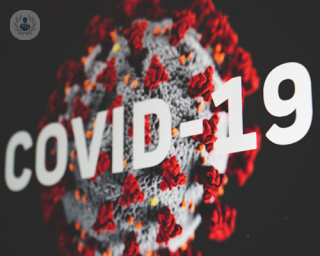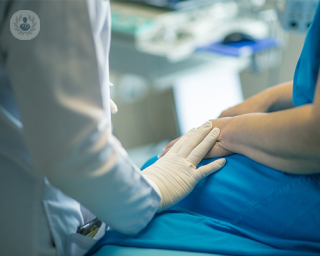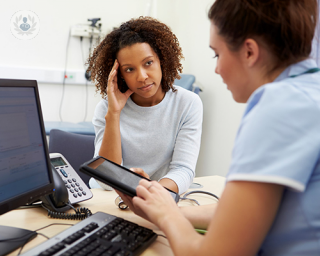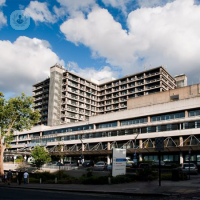Bladder problems
What are bladder problems?
Men and women can experience a variety of bladder conditions, with some being more common in one gender than the other. Bladder problems can be described as abnormal bladder function. Some of the most common bladder problems are:
- Urinary tract infections
- Overactive bladder
- Urinary retention
- Incontinence (stress, urge, overflow, total)
- Interstitial cystitis (painful bladder)
- Bladder stones (calculi)
- Bladder cancer

What is the general outlook for bladder problems?
The prognosis will depend on the condition at the root of your symptoms. If you suspect you have a health issue with the bladder, you should contact your GP or a specialist as when left untreated, some bladder conditions can affect overall health and cause further health complications.
What are the main symptoms of bladder problems?
Symptoms will depend on your condition, but bladder problems often involve one or several of the following:
- Frequent urination
- Being unable to hold in urine: leaking during everyday activities or at night
- Pelvic pain
- Nocturnal enuresis (adult bedwetting)
- Blood in urine (haematuria)
- Pain during urination
How are bladder problems diagnosed?
A doctor will initially note down your medical history and perform a physical exam to determine the cause of your symptoms. A physical examination may involve a pelvic exam for women and a prostate examination for men.
Regarding your medical history, they might ask about:
- Your drinking and eating habits
- Bowel habits
- If you’re on any medication
- About pregnancy and childbirth, if you’re a woman
- About your prostate, if you’re a man
To assist with providing your medical history, it can be useful to log the frequency of urination, when you urinate, if you leak, if you get a sudden and strong urge to urinate, and if you drank much liquid before leaking or if you experienced a strong urge to urinate.
They might also order lab tests:
- Urinalysis to check for blood and other substances in urine.
- Urine cytology to examine urine for cancerous or pre-cancerous cells in the urine.
- Urine culture to detect an infection. A sample of urine is placed into a culture dish and any bacteria is given time to grow.
They might order an imaging test such as an x-ray, ultrasound, CT (CAT) or MRI scan.
How are bladder problems treated?
Treatment will depend on your condition. Your specialist will be able to provide you with a personalised treatment plan.
Which type of specialist treats bladder problems
Urologists specialise in the diagnosis and treatment of bladder problems.
















